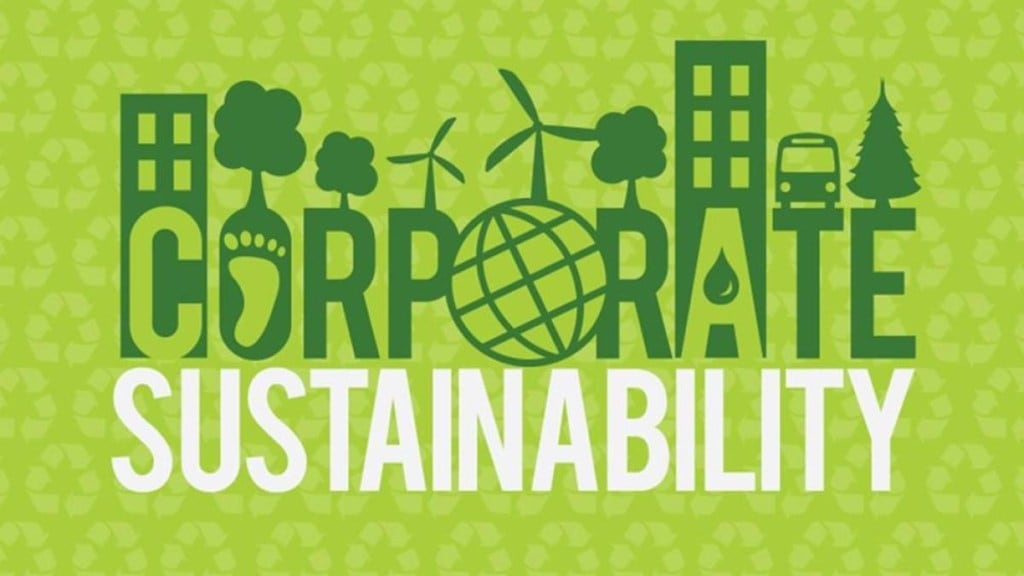In an era where accountability and transparency in corporate sustainability are paramount, ECube and StepChange have launched the BRSR Barometer 2023, a groundbreaking report that promises to reshape corporate sustainability reporting standards in India. Drawing data from over 1,000 Business Responsibility and Sustainability Reports (BRSR), this report covers 50+ ESG metrics across 13 sectors for the fiscal year 2023, including manufacturing, financial services, and IT/ITES. With growing demands for standardized, reliable sustainability data, the BRSR Barometer provides companies with sector-specific benchmarks to help them assess and elevate their sustainability performance.
In their discussions with sustainability practitioners, ECube and StepChange discovered a crucial need among companies: comparable, reliable data that could guide their sustainability initiatives. The BRSR Barometer directly addresses this gap, allowing organizations to gauge their ESG efforts against industry standards and pinpoint areas for improvement. As firms face rising pressure to demonstrate their environmental and social responsibility, this report serves as an annual tool for tracking trends and continuously improving sustainability disclosures. Additionally, ECube and StepChange plan to hold sector-specific webinars, offering companies opportunities for peer discussions and knowledge-sharing to deepen their commitment to sustainable practices.
Key findings from BRSR Barometer 2023
The BRSR Barometer 2023 offers significant insights into the varying levels of sustainability performance across sectors, highlighting both achievements and challenges that lie ahead:
1. Sectoral disparities in resource use: The report identifies substantial differences in energy and water usage across sectors. Cement, Power, and Wood & Paper industries show particularly high energy consumption, while sectors like Hospitality and Power report significant water usage. These findings underscore the importance of adopting tailored, industry-specific sustainability strategies to optimize resource usage effectively.
2. High concentration of Scope 1 and 2 emissions: Four sectors—Cement, Metals, Power, and Wood and Paper—account for nearly 90% of reported Scope 1 and 2 emissions. This concentration points to the urgent need for targeted emissions reduction strategies within these sectors, especially given their high emissions intensity relative to revenue.
3. Underreporting of Scope 3 emissions: Only 223 companies provided Scope 3 emissions data, and in some industries (e.g., Automotive, Chemicals, and Transportation), over 80% of emissions come from Scope 3 sources, such as suppliers and other parts of the value chain. For these sectors, improving data collection on value chain emissions is essential to effectively implement decarbonization strategies.
4. Low third-party assurance on environmental metrics: The report notes that sectors like Healthcare and Trade show low levels of third-party assurance on Scope 1 and 2 emissions, with coverage ranging from 0 to 15%. Increasing third-party verification can strengthen data credibility, enhancing transparency and meeting ESG standards.
Challenges and solutions for ESG reporting
The launch event included a panel discussion titled “BRSR: From Disclosure to Decision-Making”, featuring sustainability leaders like Ankit Todi from Mahindra Group, Anjalee Tarapore from HDFC Bank, and ESG advisor Santhosh Jayaram. Panelists emphasized the need for sector-specific insights to address reporting gaps and prevent data overload. They also stressed the importance of robust digital infrastructure for accurate disclosures, noting that the quality of insights should take precedence over data volume.
The discussion also highlighted gender pay disparities, especially in IT/ITES. Despite high female workforce participation, the data reveals a significant pay gap at senior levels, calling for a more equitable approach in corporate sustainability efforts.
Ankit Jain, Co-Founder and CEO of StepChange, underscored the importance of the report, saying, “In a world increasingly defined by the urgency of climate action and social responsibility, the BRSR Barometer 2023 serves as a wake-up call for businesses. The underreporting of certain metrics and emissions concentration in specific industries highlight both challenges and transformation opportunities. By integrating sustainability as a core value, companies can meet regulatory expectations while building trust with stakeholders.”
Looking forward, ECube and StepChange are set to launch Earth Inherited, a platform dedicated to fostering sustainable practices across India and the Global South. Supported by Indian Express Online, Earth Inherited will host events, educational resources, and community forums, providing a dynamic space for meaningful engagement on sustainability issues.
Harish HV, Co-Founder and Managing Director of ECube, emphasized the report’s value, calling it “a consolidated view of sustainability reporting in India for FY23, serving as a guide for corporates and regulators alike”.

